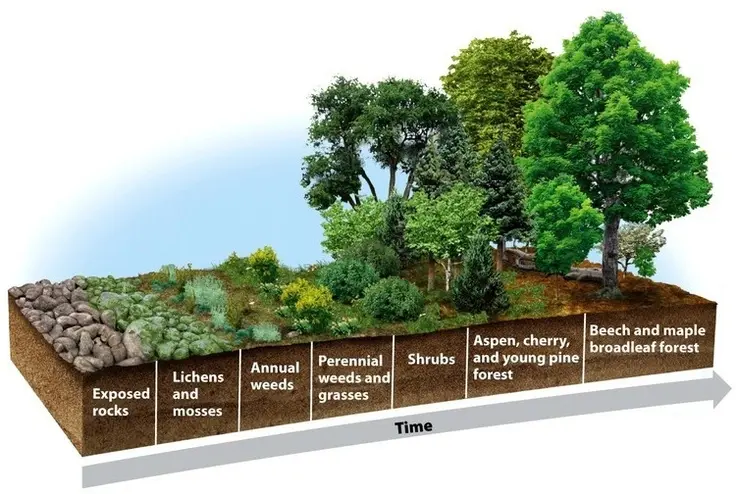Subdivision of Ecology
- Naveen Kumar
- Dec 26, 2023
- 2 min read
Updated: Apr 14, 2024
Ecology was earlier divided into plant and animal ecology, but in modern times no such division exists since plants and animals are interconnected and interdependent among themselves and on their environment.

Few important terms
Species: It is a group of organisms that can interbreed and produce fertile offspring. A species shares a common gene pool.
Population: Group of organisms of a species occupying a particular area at a particular time.
Community: It includes all the population occupying a given area.
Major subdivisions of ecology
Autecology: The study of individual organisms or individual species in relation to their environment. There are two approaches to autecological studies.
Autecology of species: where individual species are studied.
Population Ecology: where individuals of given species are studied.
Synecology: It is the study of a group of organisms associated together as a unit in relation to its environment. In synecology the unit of study is a group of organisms, it is also known as community ecology.
Important branches of ecology
Habitat ecology: It is based on the nature of the habitat. It includes freshwater ecology, forest ecology, grassland ecology, etc.
Population ecology: Studies structure and dynamics of population.
Ecosystem ecology: It deals with the analysis of ecosystems structurally and functionally.
Conservation ecology: It deals with the preservation & management of natural resources.
Production ecology: It deals with energy flow and nutrient cycling within the ecosystem.
Radio-ecology: It is concerned with the effects of radioactive material on both living systems as well as on pathways through which they are dispersed including the abiotic environment.
Paleoecology: It is concerned with ancient organisms or organisms of the past and their environment.
Genecology: It studies the genetic makeup of species or population in relation to the environment.
Space ecology: Concern with the development of ecosystems for supporting life especially human life in outer space.
Chemical ecology: It examines the role of chemical interactions between living organisms and their environment.
Human ecology: Study of relationship between humans & their environment.
Dr. Ram Deo Mishra (R.D Mishra) is known as the ‘Father of Indian Ecology’. He established a flourishing School of ecology at the Banaras Hindu University by the 1960s. Due to his efforts, the Government of India established the National Committee for Environmental Planning & Coordination (1972) which later evolved the establishment of the Ministry of Environment and Forests in 1984. He was honoured with:
Sanjay Gandhi Award in environment and ecology
Fellowship of the Indian National Science Academy of Arts & Science.

Laws of Ecology
Everything Is Connected to Everything Else: It reflects the existence of the elaborate network of interconnections in the ecosphere: among different living organisms, and between populations, species, and individual organisms and their physicochemical surroundings.
Everything Must Go Somewhere: The law emphasizes that in nature there is no such thing as “waste.” In every natural system, what is excreted by one organism as waste is taken up by another as food.
Nature Knows Best: Nature knows the best, major man-made changes in the natural system are likely to be harmful to the system.
There Is No Such Thing as a Free Lunch: Every gain is won at some cost.
References:
NCERT Biology
IGNOU Material
Shankar IAS Environment book
Recitals Magazine



